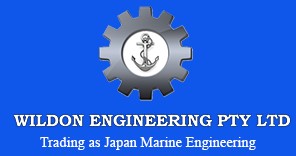Air Vs Water Cooling Compressors: Learn Their Differences To Know The Best For Your Engine
Blog | November 19th, 2021Choosing between an air-cooled or water-cooled Yanmar compressor, as described in this post, boat owners have learned to equip their vessels with powerful and reliable auxiliary machines. We’re revisiting this subject, which means we’re putting the two cooling technologies back under the microscope. The goal is to definitively illustrate the differences that exist between air and water-cooled marine compressors. Without further ado, here comes the first difference, and it’s a big one.
Flywheel Fan Cooling
This air-cooled machine doesn’t have a large radiator, so where’s the cooling medium stored? Here’s a clue, look at the engine flywheel. Storing a Yanmar compressor’s energy as radial momentum, the compressor flywheel is also serving a second purpose. It’s running at speed as a compressor cooling mechanism. Essentially, marine equipment can become large and unwieldy, but that dual-purpose engine architecture keeps the equipment compact by assigning the Yanmar marine compressor’s duties to an already fast-moving engine component. After all, high-performance compressors, those capable of serving many shipboard applications, can’t escape this byproduct. The very act of squeezing air into a smaller space is enough to generate component-fatiguing heat.
Radiator Cooled Yanmar Compressors
Sporting a cooling tank, water-cooled Yanmar compressors employ hoppers or radiators as the primary cooling medium. They’re available in horizontal or vertical cooling configurations. Predictably, water-cooled models cost a little more than their air-cooled cousins. That’s because there are more supplementary components to add, unlike the flywheel powered air coolers. For instance, there’s a cooling tank mounted at the top of water-cooled compressors. They use gravity and pumps to rapidly get the cool water where it’s needed. Then there are radiator fins, tubes, and numerous other components to maintain. Sometimes, when the option is available, water-cooled equipment can even use the vast cooling liquid that lays all around the ship. Larger compressors use this tap-in to suck up this never-ending source of water from oceans and lakes.
By the numbers, air-cooled compressors, those that exist in the Yanmar catalogue, tend to use direct combustion technology. Water-cooled models stick to indirect combustion. Of more interest, however, water-cooled equipment delivers larger displacement values, which begin at around 0.493 and peak at 0.583. And those higher output ratings run across the board because water is a more effective cooling medium. As far as air-cooling principles go, the engine room or plant room containing the machinery must be well ventilated. Water-cooled equipment isn’t limited in this way. As long as the radiator or hopper is full and the tank gauge is high, compact water-cooled Yanmar compressors will easily dismiss their thermal loads.
Wildon Engineering, trading as Japan Marine Engineering Co is the Authorized distributor of YANMAR spare parts for large-sized marine diesel engines and auxiliary generator engines (installed on the commercial vessel only) in Australia and New Zealand. YANMAR is one of the leading brands of marine diesel engines sold within Australia and New Zealand. The YANMAR brand is a dominant name in marine, industrial and power generation applications.
Optimized by NetwizardSEO.com.au
Recent Posts
- Yanmar Marine Compressors: Applications in Engine Starts, Valves, and Safety Systems
- Water vs Oil in Stern Tube Bearings: The Cost & ESG Truth Shipowners Can’t Ignore
- Yanmar Turbochargers: How Correct Spec-Matching Supports Lower SFOC and Prevents Surge
- Yanmar Diesel Generators: Planned vs Predictive Maintenance Strategies for Remote Operations
- Mareflex SOLAS Marine Tapes: Safety Applications on Marine Vessels
- Yanmar Propulsion Systems: FPP vs CPP Propellers for 6EY and 6N Series Fuel Efficiency
- Mitsubishi K.K. Purifier Separator: The Key to Cleaner Fuel and Smoother Operations
- Kemel Air Seal Retrofits: Leak-Free Stern Tube Seals and Reduced Lube-Oil Risk
- Yanmar Auxiliary Generators: Sizing for Reefers, Hotel Loads, and Dynamic Positioning Systems
- Water Lubricated Stern Tube Bearing (EVR): Proven Technology for Smooth and Quiet Operations
